Another word for a “Two Face” is a hypocrite, and in some ways a hypocrite is a coward. A fearful person who appears one way but is another.
Many of the YouTube conspiracy buffs associated with this case spend their time sifting through details and detritus, looking for meaning and revelation. But it’s not in shadows or dolls covered in plastic sheets that the real answers lie. It’s somewhere else, somewhere more subtle.
One of the obvious idiosyncrasies of this case is not only Shan’ann’s OCD, but Chris Watts’ OCD. If Shan’ann was more about organizing and scheduling, Watts seemed preoccupied with numbers, cleanliness and self-grooming.
Those who dispute the OCD Narrative, or which to minimize it, do the disservice of breaking a vital fragment of the psychology from this case, and removing it from the main body. If we acknowledge that OCD was present within both of these people, where does it lead us?
There’s a long and a short version to the answer. The short version is that OCD is symptom of one simple thing: anxiety. It’s a psychological attempt to control anxiety. This suggests that both Shan’ann and Watts were – despite appearances, despite their public faces or social media avatars – privately insecure and unusually anxious.
This chronic social anxiety partially explains Watts’ motive. He was a weak man with a weak social currency, and in his mind destroying his family and making them disappear was the easier option than a messy divorce. Probably money factored into his decision-making, but it was driven by fear. Fear of retribution from a vindictive society if he did things by the book.

Coming back to Shan’ann, and her second face, when we take the OCD Narrative [as well as the anxiety] into the realm of MLM and Facebook, we see all the troubles that are there magically disappear. How? Through magical thinking. Suddenly the world is recast as a place where one can Thrive. All problems disappear as soon as I put a patch on my arm. What the MLM effectively is in this case is a proxy for the OCD. It’s an antidote against anxiety.
It’s also a lie, which shows how ultimately the efforts to control anxiety by putting on a brave face may fool a few people, but the real loser is the liar. We don’t learn by lying, we learn by living. We don’t grow or enrich ourselves by lying, but by advancing ourselves in reality.
Where these ideas bring us is to the original title I wanted to use for this post: The Psychological Connections Between OCD, Trauma and Victim Culture. Since I thought it would scare most people away I went with the kindergarten version.
Elsewhere on this site a discussion arose around the relevance of history. It doesn’t seem relevant, does it? What does a war in a previous century have to do with a family in Frederick Colorado? Everything and nothing. Everything in the sense that a myriad of forces we’re not aware of are forming our culture, and who we are, and who we respond to our circumstances today. And nothing, because the identities in this story were to some extent self-generated.
It’s important to consider both aspects in true crime – the cultural psychology aspect and the identity aspect.
We ought to be aware that “identity politics” was what fueled the Second World War. Identity politics is all about rallying around and identifying strongly with an idea. One identifies so strongly with this idea, that one’s identity becomes infused with it.
For those interested in this subject, I recommend a brief browse through the history of identity politics [written by the sociologist Frank Furedi]. Here’s an excerpt:
…the politics of culture has rarely allowed the forging of strong bonds between different groups, as today’s acrimonious dispute between feminists and trans activists shows. Human solidarity is one of the main casualties of identity politics. Once different groups retreat into their respective safe spaces, there will be little common ground left for those committed to the politics of solidarity and the ideal of universalism…
How identity politics appears in the Watts case is this tribal approach to identifying with the victim, or sympathizing excessively or inappropriately with perpetrator, and then the two groups bombarding one other with the backing of their respective political camps. TCRS actively discourages this practice, but it’s nevertheless a constant theme in true crime.
Identity politics is our own form of OCD. It’s our own version of trying to control or recast our anxiety. There is a lot more to say about the Culture of Victimhood as a general theme pervasive in our society, and also the victim psychology within the Watts case. What’s clear is during his “confession”, when Watts himself was becoming a real victim in his own story, he was offered an olive branch.

He was offered the chance to be the victim, and thus innocent of his own actions. This was ironic given the reason he committed the crime – it was a chance to no longer be a victim, and not be held accountable by his ex-wife for his actions [meaning his new partner could see him as innocent, or in his mind, as “who he really was”.]
When offered the chance to be the victim during his interrogation, Watts did this by making his murdered wife the offender.
Think about Identity Politics and idea of identifying with a Perceived Victimhood. Maybe you feel discriminated against because of your race, sexual orientation or some other reason. Maybe you feel diminished because of someone or something else. Maybe you feel your country is about to be overrun by immigrants. Maybe you feel someone or some class of people is invading your domain and will soon steal your job. All of this raises anxiety. At the same time, the source responsible for this narrative offers an instrument to sort it out [a wall, a patch, an exit, an army of the like-minded etc].
There is also a fascinating relationship between history and victimhood, in fact history tends to be used like a convenience store to prop up victimhood, especially in modern times. So after decades of silence on the subject, concepts like slavery and colonialism and the idea of privilege comes into vogue, at a time when – for example – colonialism is safely in our past. So why bring things up if their relevance to our actual lived realities is such a stretch?
Because it cuts to who we are. It cuts to the core of our own whys. And this is the attraction of true crime. We don’t realize it, but in some way, shape or form we identify with the circumstances of a crime as much as we are horrified and try to distance ourselves from it. Even when we blame and disassociate ourselves, calling the criminal names that makes us feel better about ourselves, we reveal our own shallow approach to the victim and their lived experience. We’re not expressing solidarity when we gravitate to a victim psychology, we’re doing the opposite: we’re separating ourselves from a universally lived existence, and we do that in an attempt to elevate ourselves [as innocent victims we deserve some sort of recompense, some compensation].
We need to move beyond imposing our own sense of Perceived Victimhood on how we see others, and how we see the world. Just as MLM recasts the world in an instant as a place filled with magical solutions and patches that can transform our lives, victimhood does the same. We wear a patch branded with a particular kind of victimhood, which allows us to belong to a fellowship of victims, and we may even pay money to do that.
TCRS is about seeing the people in these cases, not imposing our own narratives onto them.
It’s not easy.
I don’t like to discuss these concepts here, simply because they require a lot of background, and a lot of silent contemplation. I prefer to do due diligence to these ideas as a chapter within a narrative where it will resonate best, and where there are a lot of enriching references to sketch the psychology properly. Also, many who come here skating on the highways of Google, tend to be the least affected by them. This is a private and personal matter, and better debated and considered as part of one’s own internal dialogue.
Let me leave you with something from Psychology Today originally posted in June 2014.
Why would people loudly and publicly proclaim themselves as victims? Perhaps a better question, based upon the level of secondary gain, attention, protection and support received by these people, is why wouldn’t they? With all of the attention on the issue, why are we surprised when people are exaggerating, using, or downright lying, about victimization? Of course, when we attach benefits to identification as a victim, we will hear from more victims, both real and exaggerated. Acknowledging a history of victimization is healthy, but is that all that a person is?

True Crime Analysis, Breakthroughs, Insights & Discussions Hosted by Bestselling Author Nick van der Leek
Tag: victim blaming
It’s time for some mythbusting around the increasingly popular myth that the TWO FACE series, and TWO POLLYANNAS in particular, is all about running Shan’ann Watts down. The writing is biased; Chris Watts is hero worshipped and Shan’ann deserved what was coming because of the way she treated him.
It’s not true.
It’s not even close to the premise of TWO POLLYANNAS. In fact the title doesn’t refer to Chris Watts or Shan’ann whatsoever. TWO POLLYANNAS is about the two poor little girls at the center of the tragedy, who have been overlooked in almost all coverage.

Even so, the TWO POLLYANNAS title doesn’t refer to them either. It’s a much deeper narrative than that.
It shouldn’t even be necessary to say this, but I’ll say it anyway.
In true crime without exception no one deserves to die! The very reason we’re here trying to figure out what happened is because of a criminal act that has shocked us to the core, and we want to know why.
Even when we begin to find answers to why, that doesn’t mean we’ve found out that they deserved to die. Why is about motive. It’s why the murderer committed murder!

If anyone didn’t deserve to die in this story it was Bella and Ceecee. Who were they? Didn’t their little lives matter? What were their personalities like? Who were their friends? What impact did they have on their parents as a unit, and on each parent individually? So that’s the perspective TWO POLLYANNAS takes.
What did the Watts household feel like from the inside, how did it operate, and what was it like to experience it? Well, we get that from the perspectives of Bella and Ceecee. TWO POLLYANNAS attempts to show what it was like being them behind closed doors and between Live posts to Facebook.
In every true crime case I’ve made an attempt not just to understand the merits of the crime and the case, but what was going on with the victim, the perpetrator and the true dynamic that existed between murderer and victim. Who were these people really, in life?
So, over the course of several narratives in a series, the issues of all the characters will need to be addressed, and addressed equally. So trying to fathom family dynamics isn’t about blaming anyone, it’s about fathoming family dynamics.
Family dynamics are difficult to get to, and they’re especially so when families won’t come forward and be 100% clear about what was going on. Also, some families will reveal more about their relatives, others will reveal less. It’s up to us then to look at what’s being withheld.
In the the Watts case in particular, the family dynamics isn’t speculation because we’re in the unique position to have a trove of Facebook videos in the public domain showing all four family members repeatedly interacting with one another. It doesn’t take long for behavioral and personality patterns to emerge. Access to them is one thing, but what do they mean?
https://youtu.be/FVvyQkdy7NM
What if it means that beneath the veneer of a fairy tale on Facebook, the Watts family weren’t quite as happy or functional as they appeared? This sounds like heresy, and some people are aghast to hear it. What? Cracks in the marriage? How dare you! But we do dare, because of the way the family was annihilated. Looking at the fairy tale isn’t the full story for why this crime happened. Looking into the cracks may reveal why it fell apart.
But some people just don’t like that. They want the fairy tale, and part of it is that Chris Watts had to be all evil, and his wife and children all good. Sadly, real life just isn’t like this because – guess what – no one is perfect.
One of the worst reviewed series I’ve written thus far is on the Steven Avery case. People absolutely hated the FOOL’S PARADISE books because it didn’t agree with the popular and mainstream premise in Making A Murderer that Steven Avery and Brendan Dassey were both framed, and as such innocent victims. There is an inverted fairy tale about murderers as innocents. In that story, people want to believe Avery and Dassey are innocent so that their own perceived victimhood is real.
If the innocence story is a fiction, however, then their victim story is a fiction too.
Unfortunately for those bleeding hearts who are desperate about proving Avery’s and Dassey’s innocence, they weren’t framed, and whatever you may think of Making A Murderer’s Sympathy Narrative [also known as True Crime Apologia in the mold of Paradise Lost], however strongly you may feel for Avery, the question around his guilt or innocence is by no means a mystery.
The law, evidence, and let’s be clear – common sense – produces a very different result to Avery’s and Dassey’s guilt than the payoff from the emotional story. That’s why the outcome of the case feels different to the conventional, popular wisdom. But true crime is more than about feelings, it’s about real people, real destruction of lives, real emotions and real reality. That’s the true in true crime.
In the Jodi Arias books, most readers wanted a black and white narrative where Travis Alexander was portrayed as the innocent victim whereas Jodi Arias was sketched as monstrous, and as a hideous murderess.
It should be obvious by now that to say Jodi Arias [or any convicted criminal] is guilty and a disgusting liar and a horrible human being isn’t only stating the obvious, it’s self-evident. How much time do we spend name-calling criminals before we get to the business of dealing with their cases and uncovering the full extent of their lies?
If name-calling and dancing on their graves is all we want to do, then do it, get it over with but don’t confuse that with research or reading or analysis. If you want to feel good about how bad someone is, if you love to hate, spend your time getting your kicks on social media. Every time someone says “monster”, “narcissist” or “psychopath”, like or retweet it, and that’s all the true crime effort you need to “understand” a case.
On the other hand, if you’re more serious about figuring out motive and method, the why and how of these crimes, then climb aboard the Rocket Science rocket and let’s see what we can find out. That’s different. That’s an intellectual journey.
Why would one work on a narrative fixating on the obvious [guilty! psychopath! evil monster!] unless to gloat about someone’s badness and rage about the victim’s goodness. Rocket Science is more sophisticated than that, alas. It tries to do the simple but supremely difficult thing of figuring out the more difficult stuff; why crimes happen, and who the people are that are involved. That’s all.
It’s because of the above that these three reviews below of TWO POLLYANNAS ring false. It’s not enough to shoot down the analysis [because it’s not sufficiently pro Shan’ann, or anti Watts], the writing itself must be seen as a cynical and dishonest effort to make money.
In the first review the indignant reviewer can’t even spell the name of the victim correctly.
I’ve read a lot of Nick’s books and I usually really enjoy them, especially all his books about the JBR case. This book left me with an uncomfortable feeling. I got the distinct sense that he is blaming Shannon for her own murder – as if she was so controlling and impossible to live with that she had it coming. How can he presume to know this so well if indeed it was true – and how does that justify what Chris Watts did? Simply a shocking road to take in my opinion, but in the end I guess it’s all about making money and selling books. Glad I read it for free.
The reason I resent schizophrenic reviews like this, is that they’re from regular readers who ought to know better. They ought to know by now that every aspect of the case is examined – the good, the bad the ugly. That they wish to conveniently pick and choose their truth based on their own bias is especially out of place in true crime.
A lot of time was spent talking about how Shanann was racking up debt while Chris was working hard at his job. It repeatedly mentions her OCD, illness, and time spent on social media in a negative way. This was not just done from facts, even if the author would like you to think it was. The author seemed to be blaming her for a lot of the pressures on Chris…
This review is better, but it ignores the fact that effectively Chris Watts was for all intents and purposes the sole breadwinner in the household. If you buy into the MLM farce that Shan’ann was truly Thrivin’ and bringing in an income, I can see how you might find difficulty – and discomfort – with that assessment.
All the credit cards in the Watts household were maxed out, not because they were making enough money, but because they weren’t. The bankruptcy filing is adamant that there was only one source of income in the Watts household [in 2015], and the little money Shan’ann was bringing in was about to be diminished by her second pregnancy. In 2018 the credit cards were still maxed out, and now she was about to have a third child.

The health expenses in the Watts household were all on the one side. Chris Watts had seemingly no medical issues or expenses, hell, he even exercised at home in a homemade gym.
What surprised me in researching TWO POLLYANNAS wasn’t just Shan’ann’s medical circumstances, but the children’s too. Both children were quite sickly. This assessment, which was researched prior to the release of the Discovery Documents, has since been confirmed by them.

Fact is, one of Shan’ann’s surgeries [to her neck] cost over $100 000. Who was going to foot the bill for that? Putting aside for a moment everything else, the mortgage, the crippling credit card debt, the school fees at Primrose – if your partner had medical expenses of $100 000, and it was your job to pay for it, how would you feel about it?

The actual state of the Watts family finances, even after the release of all the information, still remains a mystery.
And then there’s this.
Not only has the author nothing nice to say about a murdered woman and her children, what he says is simply not true. This isn’t true crime writing: it’s true fiction masquerading as true crime.
True crime isn’t about having good things to say about anyone. It’s about analyzing evidence and seeing what that has to say. If you disagree, and you may, well that’s another story, but are you disagreeing from a position of strength from an informed position, or weakness, based on little more than an emotional position?
The coverage on CrimeRocket is an extension of what goes into the written narratives. How much of the coverage on this site [out of 10] would you say is fictional, speculative, biased or not true?
Buy the TWO Face series at this link.

© 2024 TRUE CRIME ROCKET SCIENCE
Theme by Anders Noren — Up ↑
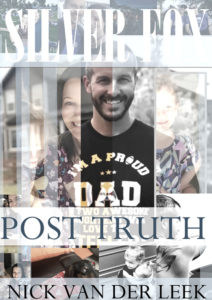
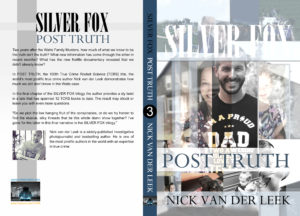
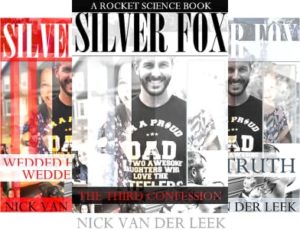
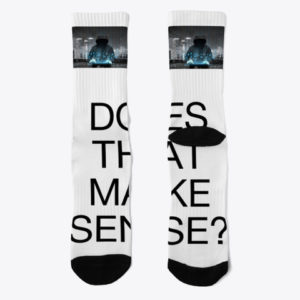
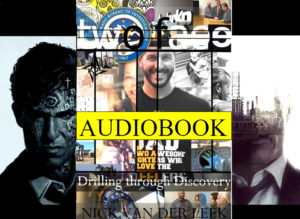
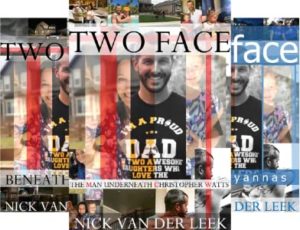

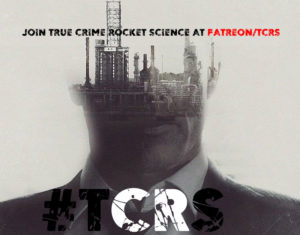

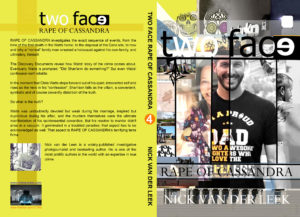
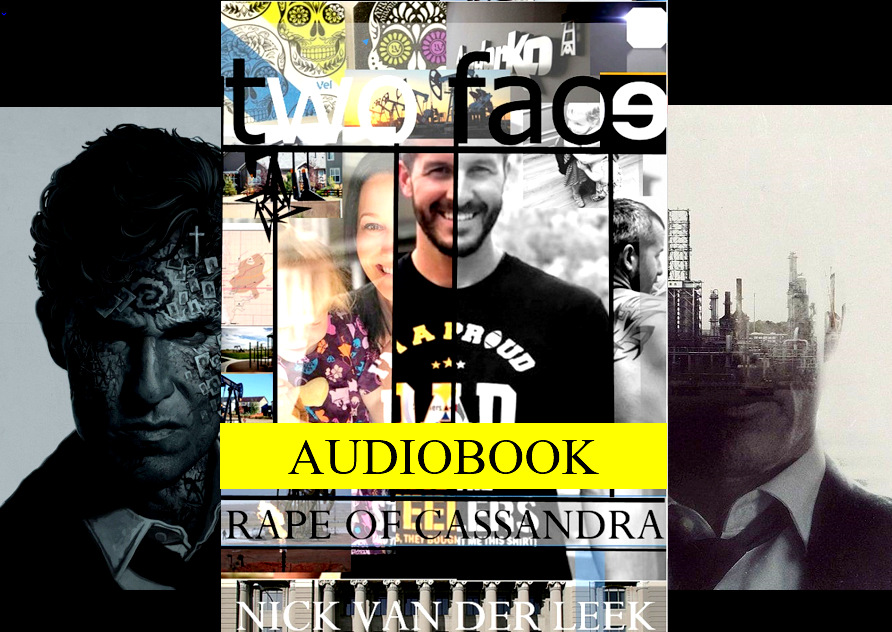
Recent Comments